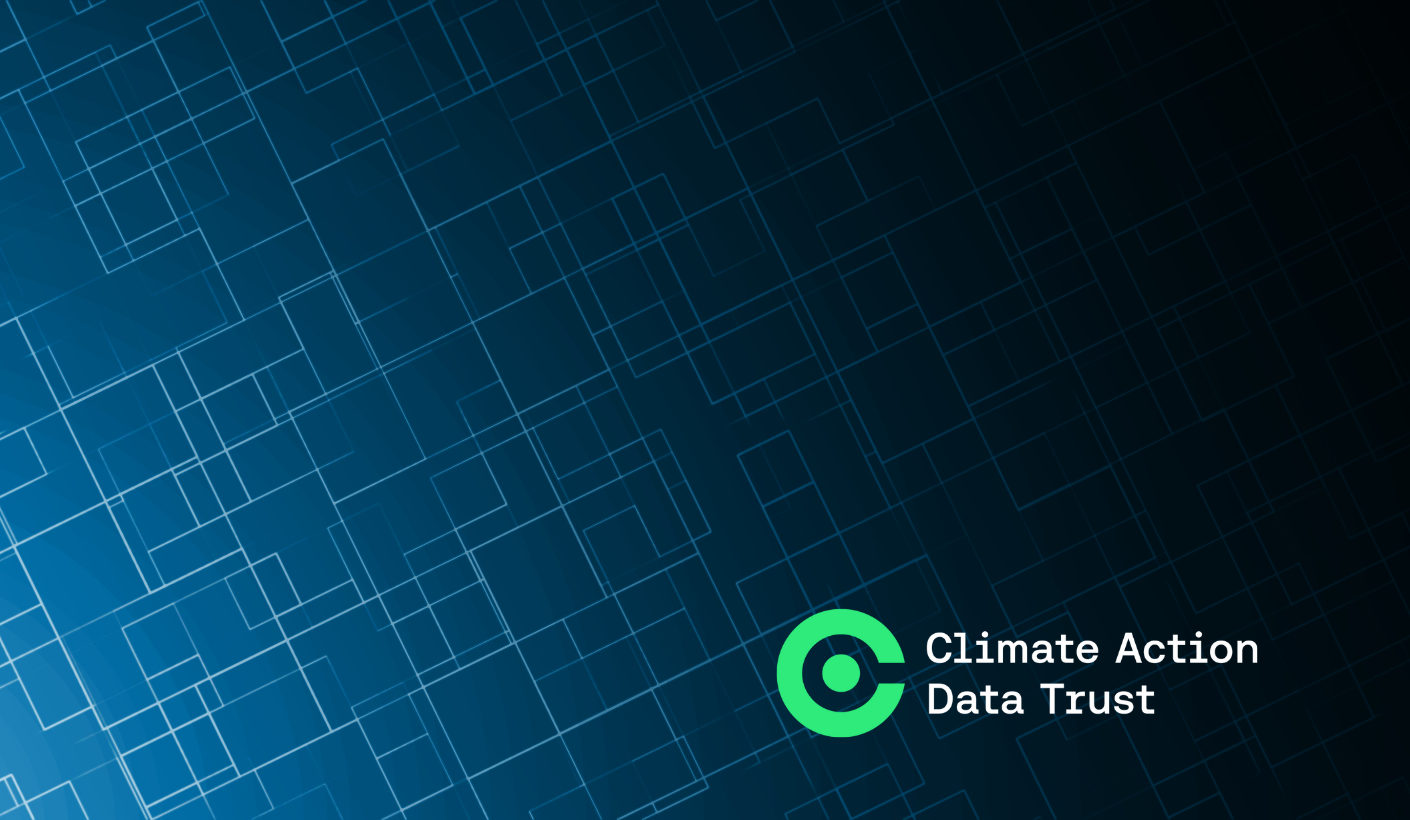News
27/11/2023
The Climate Action Data Trust will participate in the following COP28 events:
1) Facilitating Article 6 of the Paris Agreement: The Role of New Digital Infrastructure in Reporting and Implementation
DATE: 2 December | Time: 13:45-15:00 (local time)
Hosted by: IETA / CAD Trust
Location: IETA Business Hub, Opportunity Petal, Area B6, Building 84, Blue Zone
Session Summary: In this engaging panel discussion, experts will converge to explore how cutting-edge digital infrastructures can facilitate the implementation and reporting requirements of Article 6 of the Paris Agreement. The session will highlight the critical role of digital technologies in enhancing the efficiency, transparency, and accountability of carbon markets. Panelists will discuss the implementation of advanced software systems, including open-source models, in managing and reporting carbon credit trading and emissions reductions. Emphasis will be placed on how these technologies can aid countries in fulfilling their Nationally Determined Contributions (NDCs) more effectively by simplifying the tracking, verifying, and exchanging of carbon credits across borders.
Moderator: Dirk Forrister, President & CEO, IETA
Presentation by Dinesh Babu, Executive Director, CAD Trust
Speakers:
Hania Dawood, Manager, Climate Finance & Economics, Climate Change Group, World Bank
Tashi Pem, Director General at Department of Environment and Climate Change, Bhutan
Hassaan Ghazali, Senior Manager, Policy & Partnerships, UICCA
Finn O’Muircheartaigh, Director Policy and Markets, BeZero
Watch the recording here.
2) Digital for Climate (D4C): Building an End-to-End Digital Ecosystem for Carbon Markets
DATE: 3 December | Time: 15:00-16:00
Hosted by: D4C
CAD Trust: Gemma Torras Vives (Technical Committee)
Location: UNFCCC Climate Change Global Innovation Hub
Session Summary:
Building an end-to-end digital ecosystem is critical to ensure end-to-end integrity across carbon markets. This involves digitizing the verification, tracking, issuance, and trade of carbon assets. The Digital for Climate (D4C) Working Group is currently building modular and interoperable end-to-end digital solutions with the objective to underpin and streamline carbon markets under the Paris Agreement (UNFCCC UN, UNDP, EBRD, The World Bank, European Space Agency – ESA, IETA, Climate Action Data Trust). This session will feature a series of in-depth technical presentations, offering insightful contributions and findings from current pilot projects and practical use cases.
3) Launch of Bhutan’s Carbon Registry
DATE: 4 December | Time: 9:30-10:30
Hosted by: Bhutan
CAD Trust: Hania Dawood
Location: Bhutan Pavilion
Session Summary: The Royal Government of Bhutan is delighted to announce the launch of its national carbon registry, marking a significant step in the Kingdom’s journey into global carbon markets with the goal to harness carbon finance for the country climate mitigation objectives. This event will unveil Bhutan’s dedication to participating in carbon markets, underpinned by a commitment to enhanced trust and transparency being the first country to connect to the Climate Action Data Trust.
The session will highlight how Bhutan plans to leverage its national carbon registry for accurate tracking, accounting, and reporting of emission reduction units and the collaboration with the World Banks Climate Warehouse, and Bhutan’s strategic entry into global carbon markets, elucidating how leveraging robust digital infrastructure will be the cornerstone for success.
4) Digital Transformation & Decentralized Climate Data Infrastructures
DATE: 4 December | Time: 10:30-11:30
Hosted by: KPMG
CAD Trust: Dinesh Babu
Location: Digital Innovation Pavilion (Blue Zone)
Session Summary: Web3 technologies and digital accounting infrastructures have the potential to enhance climate and nature action, unlock and mobilize finance through financial instrument and investment innovation, and establish the trust foundation needed for the market to accelerate and deliver large-scale investment in climate action. However, if done poorly, digital innovations could undermine the integrity and erode confidence in ecological markets and digital assets. Challenges to adoption include regulatory complexities, digital infrastructure and network scaling limits, and a lack of market participant familiarity with digital technologies.
5) Advancing digitization in carbon markets.
DATE: 4 December | Time: 11.00-12.30
Hosted by: GCC
CAD Trust: Federico Di Credico
Location: GCC pavilion, Pavilion 130, Opportunity District, Thematic Arena 3, Blue Zone
Session Summary: Digitization of carbon markets holds the promise of making carbon credits right from the point of origination, independent verification, to offsetting/insetting of emission reduction/removals more efficient, transparent, and traceable. It has the potential to transform the way emissions reductions or removals are measured, reported, verified, managed, and traded, providing a more effective and reliable mechanism for reducing greenhouse gas emissions and combating climate change.
6) Operationalisation of Article 6.2: Challenges and Opportunities (MENA Region)
DATE: 4 December | Time: 14:00-15:30
Hosted by: GCC
CAD Trust: Dinesh Babu
Location: Blue Zone, Opportunity District, Thematic Arena 3, Pavilion 130, Expo City
Session Summary: This session will discuss the actions taken by countries and the plan in place to roll out Article 6.2 and issue ITMOs with multiple purposes: to support NDC targets of acquiring countries, to support other international mitigation purposes, or for other purposes. The session will also cover the role of internationally recognized independent carbon credit standards in quickly operationalizing Article 6.2 to bring critical finance to fund host country climate actions. The ready infrastructure of the independent standards to issue high-integrity carbon credits and avoid double accounting can be instrumental in leapfrogging the Article 6.2 framework internationally.
7) What is end-to-end integrity in the voluntary carbon market?
DATE: 9 December | Time: 14:00-15:30
Hosted by: IETA / ICROA
CAD Trust: Dinesh Babu
Location: IETA Business Hub, Blue Zone
Session Summary: The VCM is receiving a lot of attention from the media and regulators, and we often hear about the need for “end-to-end” integrity. This session will discuss the challenges the main market integrity initiatives are facing as they work to build trust, increase clarity, and minimize risks to encourage greater uses of carbon credits.


